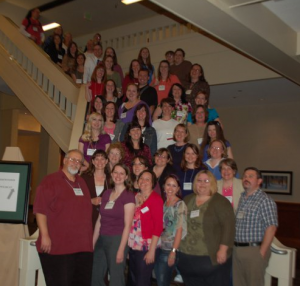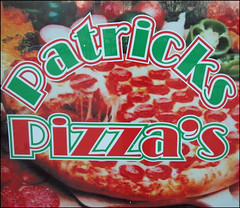Back when I worked for Marketing Pilgrim, sometimes I’d gather up all the best stories of the week and post a link round up called Linky Goodness. Today I’m bringing it back, but instead of marketing news, I’m linking to awesome posts about writing!
- We all know writing is a solitary endeavor, and since it’s a second (or third) job for most of us, sometimes it’s hard to take away our precious writing time to seek out other writers—but it’s vital to our well-being! Gabi Pereira of DIY MFA fame talks about Why Writers Need Writer Friends. I especially liked this after attending a conference and seeing all my friends earlier this month.
- Published author Lisa Schroeder takes a look back at her agent search, saying:
It was a bit strange to look back to that time – that time when I wondered if I would ever land a good agent and if I would ever have a novel on the shelves of bookstores. And now, three years later, I think about what I would have told myself if I knew what I know now. I certainly did some things right, but I think there are some things I could have done differently.
I like gaining perspective from people who’ve been there, you know?
- Author Jenny Martin’s post Voice, the right words is a great take on voice:
But voice isn’t really about rules. It’s not about passive verbs and misplaced modifiers and too many descriptive clauses. Voice is so much deeper.
Voice is about letting the characters interpret the action, instead of reporting the events of a story.
Voice is (and should be!) intimately tied to POV, and this is a great way to do both.
- In The Danger Zone – When You Go Insane With Editing, Michelle Davidson Argyle warns against going cuh-razy with the edits:
Danger Zone: When you start looking at the number of specific words in every single paragraph in your book. Too many “thats!” you cry, and start hitting the delete button like a crazy person. You start fixing things everywhere, and out of order. Then you realize that you’ve changed something back there that will affect something up here that will affect something over there. Crap.You’ve created a mess. So you do more editing, and before you know it three months have passed and you should have just rewritten the book from scratch.
This reminded me of Jami Gold’s post on editing for perfectionists. Personally, I’d like to remain sane.
- Whether you’re LDS or just have high moral standards, this article on art and morality is very interesting. The conclusion: you don’t have to write dark and disgusting stories about dark and disgusting things to get published. Also, there’s some great advice to all writers starting at “Before closing I want also to say a few words about technique in creative writing.” (story via Elizabeth Mueller)
- While publishing can definitely give writers a sense of validation, should it matter whether you’re getting a six-figure advance or not? Michelle Davidson Argyle says it isn’t about the big publishing deal.
- For fun: The Periodic Table of Storytelling based on TVTropes.org. Very funny!
Enjoy!
What’s your favorite post on writing from the last week or so?


 )
)
 .
.



